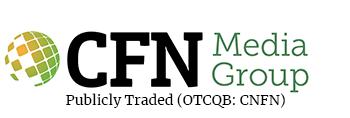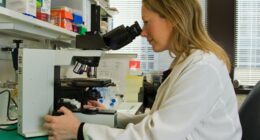If you’ve been paying attention to the news in the last couple of years, you may be familiar with myocarditis. It’s a condition characterized by inflammation of the heart muscle (the myocardium), and is a rare but known side effect of both a COVID-19 infection and of the mRNA vaccine for COVID-19. Before COVID was even a thing, acute myocarditis was and remains a leading cause of sudden cardiac death in people under 35 years old. To this day, there is currently no FDA-approved treatment for acute myocarditis.
A similar disease, pericarditis, has proven equally vexing. Pericarditis involves the inflammation of the sac surrounding the heart (the pericardium), and its symptoms can mimic those of a heart attack. Almost a third of pericarditis patients will unfortunately experience a recurrence, and the most persistent cases can last for years. The only FDA-approved therapy for recurrent pericarditis costs over $150,000/year.
However, there is one company dedicated to the development of therapies for cardiovascular conditions that is currently executing two Phase II clinical trials for both acute myocarditis and recurrent pericarditis. Cardiol Therapeutics Inc. (Nasdaq: CRDL) (TSX: CRDL) is testing its proprietary CardiolRx™ therapy, an oral formulation of cannabidiol, in concurrent trials. Both trials represent the opportunity for Cardiol to address problematic but under-studied rare diseases, and the company plans to pursue American orphan drug and European orphan medicine designations of CardiolRx™ for both recurrent pericarditis and acute myocarditis, should the trials show efficacy. Combine these programs with the company’s pre-clinical investigation of a novel treatment for heart failure, and Cardiol looks to have several shots at potentially lucrative goals.
Watch Cardiol Therapeutics’ CEO David Elsley discuss myocarditis and the company’s efforts to develop a therapy for the disease.
Myocarditis
There are no FDA-approved therapies for acute myocarditis, only guideline-directed therapies and management. People suffering from acute myocarditis, estimated to affect approximately 46,000 Americans each year, can be hospitalized for prolonged periods and even require intensive care while suffering from complications including cardiac arrest and heart failure. Patients may require a pacemaker, antiarrhythmic drugs, or defibrillation, and the most problematic cases may require a heart transplant.
A recent study reviewing current treatments calls for randomized clinical trials to find appropriate and effective treatments for acute myocarditis. This is just the type of trial currently being conducted by Cardiol Therapeutics, called the ARCHER trial. ARCHER is a Phase 2 multi-national trial to evaluate the safety and tolerability of CardiolRx™, as well as its impact on myocardial recovery, in patients presenting with acute myocarditis. ARCHER will enroll 100 patients at major cardiac centers in North America, Europe, Latin America, and Israel. Cardiol recently announced that all clinical research centers are moving forward, and enrollment is expected to be completed in 2024.
Pericarditis
Pericarditis is estimated to affect about 160,000 Americans annually, with about 18,000 of those cases requiring hospitalization. The standard of care currently calls for the use of a variety of anti-inflammatories including aspirin, NSAIDs like ibuprofen, and colchicine. The downside to these treatments is the risk of further cardiovascular, renal, and digestive complications from extended NSAID use. And colchicine is used on an off-label basis with no official guidelines for its use with pericarditis patients. Corticosteroids, despite safety issues and difficulty with tapering or discontinuation, have been used to treat recurrent pericarditis as a second-line therapy for patients with continued recurrence and inadequate response.
In March 2021, the FDA approved Kiniksa Pharmaceuticals’ (licensed from Regeneron Pharmaceuticals) ARCALYST®, the company’s commercial product name for rilonacept. Rilonacept is an immunosuppressive biologic that inhibits interleukin (IL) -1 activity. Demonstrating the speed of the Orphan Drug program, Kiniksa announced positive data from its Phase 3 trial in June 2020 and was granted Orphan Drug designation in July 2020. Nine months later, rilonacept was approved by the FDA for the treatment of recurrent pericarditis. There are, of course, side effects, the most common of which is upper respiratory infection. And the drug’s immunosuppressant characteristics mean it shouldn’t be used in patients with active or chronic infection. ARCALYST®’s most glaring side effect may be its price, with estimates ranging from $150,000 to $240,000 annually.
Cardiol Therapeutics is committed to bringing a groundbreaking medicine to patients, as demonstrated by its ongoing Phase II MAvERIC-Pilot study to test the safety and efficacy of CardiolRx™ for the treatment of recurrent pericarditis. The study will assess the improvement in objective measures of disease, and during an extension period, assess the feasibility of weaning concomitant background therapies, including corticosteroids, while taking CardiolRx™.
Of note, there are striking similarities between Cardiol’s MAvERIC-Pilot study and Kiniksa’s study of rilonacept. The pre-clinical studies for both were conducted by an overlapping team of researchers. In fact, Cardiol’s pre-clinical research produced as or more compelling and stronger data than those presented by Kiniksa. In addition, Dr. Allan Klein, MD, CM of the renowned Cleveland Clinic is chairing the trial for Cardiol after doing the same for Kiniksa.
Orphan Drug Designation
Smaller pharmaceutical companies often can’t compete with big pharma when developing therapies for major diseases, however there is certainly a need for new therapies to treat rare diseases. The Orphan Drug designation, both in the United States (FDA) and in Europe (EMA), was designed to encourage the research and development of therapies into diseases with smaller patient populations that are often overlooked by big pharma. The program offers tax credits, fee waivers, specialized assistance from regulators, and access to grants for participating companies. After approval, orphan drugs can enjoy a seven-year period of exclusivity without generic competition. Cardiol is on the path to treat recurrent pericarditis and acute myocarditis that could qualify CardiolRx™ for two Orphan Drug designations.
According to PharmaExec, over half of the US FDA’s drug approvals in 2021 were for orphan drugs. By 2026, orphan drugs are expected to constitute 20% of all prescription drug sales globally. Orphan drug sales are growing more than twice as fast as non-orphan drug sales. These trends point toward two things. One, pursuing the development of orphan drugs, in general, can be very lucrative. Two, big pharma has figured this out and has been acquiring smaller companies to add new revenue to their portfolios. Despite the current proliferation of orphan drug approvals, an estimated 7,000 rare diseases remain underserved. Plenty of headroom is still available for the orphan drug market.
What to Look For
Pharmaceutical research can be a long drawn-out affair, but investors looking for potential value creation are alerted to progress along the way. Each step of the clinical trial process offers the benefit of positive data, encouraging continued development of therapies to improve the lives of many. As seen with the rilonacept example above, once positive data is announced from a Phase 3 trial the Orphan Drug program can help speed the way to approval for drugs that address unmet needs.
This is the path Cardiol Therapeutics is following. With two simultaneous Phase 2 trials underway for the treatment of very serious but rare heart conditions, neither of which is adequately treated, Cardiol is positioned to address very large markets should either prove successful. The global pericarditis market is estimated in the $1.9 billion – $3 billion range and the global myocarditis market is estimated at $1.6 billion, with both markets predicted to continue growing.
Consider Kiniksa and its ~$1 billion valuation being largely attributed to its commercial product, ARCALYST®, for recurrent pericarditis. Cardiol’s lead drug candidate, CardiolRx™, is being studied for the same indication with the benefit of costing significantly less and with fewer side effects expected. On top of that, Cardiol’s acute myocarditis trial offers an even greater opportunity with no FDA-approved treatments currently in the marketplace.
In addition to these opportunities, Cardiol’s pre-clinical study recently showed promise for the treatment of heart failure, a much more common and global disease with enormous market potential. With several irons in the fire and a market cap currently hovering in the $50 million range, there is plenty of upside should Cardiol continue to show positive progress. Potential investors are encouraged to keep a close eye on Cardiol Therapeutics’ developments.









